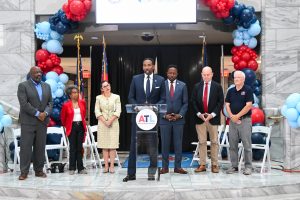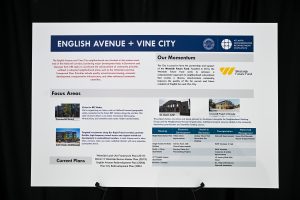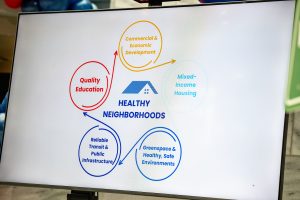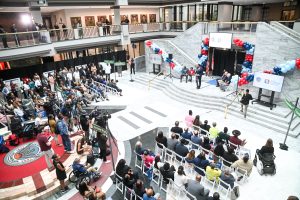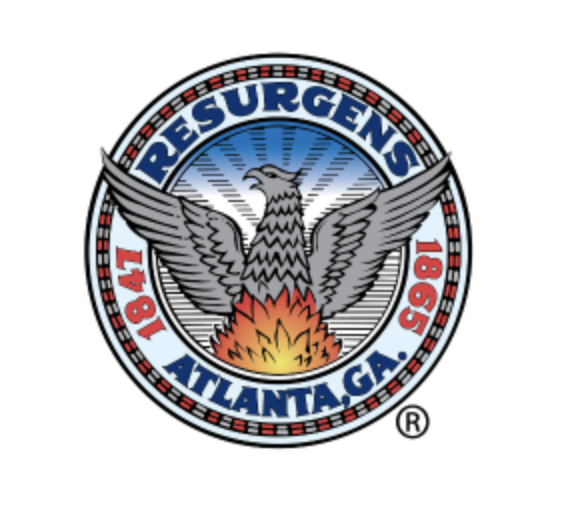Plan embodies vision to make Atlanta the best city to raise a child
On September 30, Mayor Andre Dickens launched the Neighborhood Reinvestment Initiative (NRI) inside City Hall’s atrium, calling it one of the most ambitious community investment strategies in Atlanta’s history — a $5.1 billion plan designed to direct purposeful investments into neighborhoods, particularly in south and west Atlanta, that have seen decades of underinvestment.
A Citywide Commitment
The NRI is a cornerstone of the Mayor’s Moving Atlanta Forward agenda, anchored in his vision of making Atlanta the best place to raise a child. Dickens told the crowd, “When a child thrives in Atlanta – Atlanta thrives. We have an opportunity to serve as architects for a brighter future where leaders, residents, partners and organizations are all working toward the same goal: stronger neighborhoods for all Atlantans.”
The initiative unites public agencies, private partners, and residents around a shared mission: ensuring every community has access to affordable housing, jobs, small business growth, parks, reliable transit, and health resources.
Why It Matters
For decades, social and economic inequalities have left many families in south and west Atlanta with fewer opportunities, poorer health outcomes, and limited access to fresh food and reliable commutes. Mayor Dickens emphasized that the NRI is about more than buildings — it is about people and opportunity.
Courtney English, Interim Chief of Staff and Chief Policy Officer, echoed that message. “We will build parks, trails and green spaces. We’re going to increase access to transit. We’re going to make sure that we have enough high quality and reliable infrastructure. We’re going to build affordable housing, grocery stores and childhood education centers in these specific neighborhoods,” he said.

Community voices underscored the importance of the work. Grove Park Foundation Executive Director Gavin McGuire called the plan “about more than buildings, it’s about people,” while faith leader Dr. Liza Hickman described it as “a progressive program addressing issues of income inequality and mobility that will benefit our community for years to come.”
By the Numbers
To fund the effort, the City will leverage Tax Allocation Districts (TADs) — a financing tool that captures growth in property tax revenues and reinvests it in community projects. Together with Fulton County and Atlanta Public Schools, more than $5.1 billion in identified investments will fuel projects across the city:
- $1.9B for expanded transit networks
- $1.5B for trails and greenspace
- $1.3B for affordable housing projects, single- and multi-family
- $170M for health centers, recreation, and groceries
- $88M for small business and commercial development
- $81M for infrastructure upgrades
These TADs are currently set to expire in the next 5–13 years. Extending them beyond 2050 will be critical for the NRI’s success.
What’s Next
The initiative will focus investments in areas including the Beltline, Perry Bolton, Hollowell/MLK, Eastside, Westside, Stadium, Campbellton, and Metropolitan corridors. With safer neighborhoods, better schools, more affordable housing, and new green spaces on the horizon, Dickens said the goal is to give every parent — regardless of zip code — the same ability to provide for their family and prepare their children for a brighter future.
“Together, these building blocks serve to create places where people live with dignity, move freely, learn deeply and grow successfully,” Dickens said. “Atlanta is a group project, an approach that really works when we apply the whole of government and the whole of community.”
Residents are invited to learn more by visiting: https://atlneighborhoods.org/.




